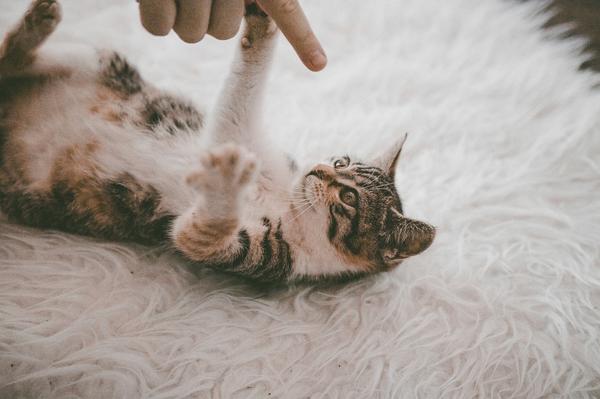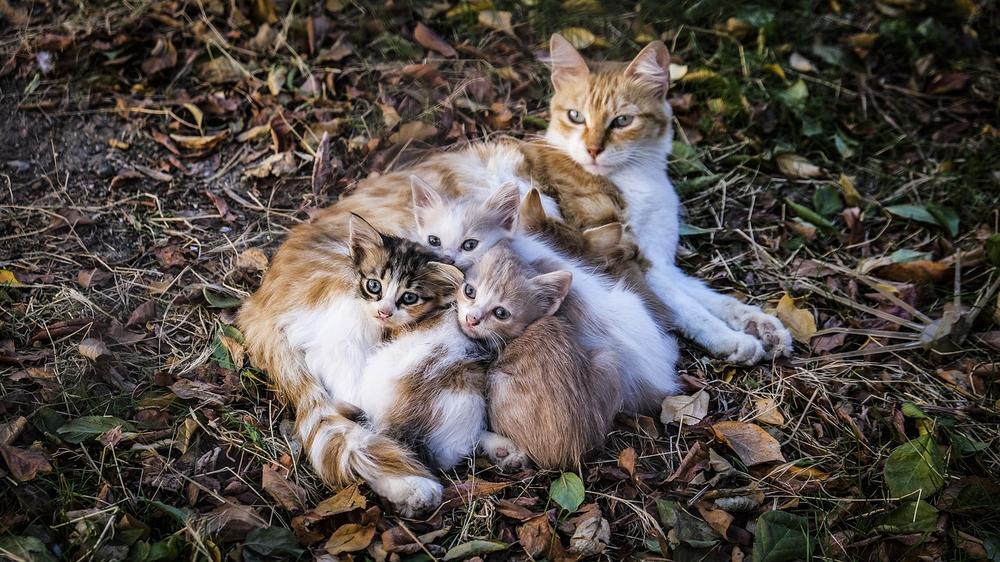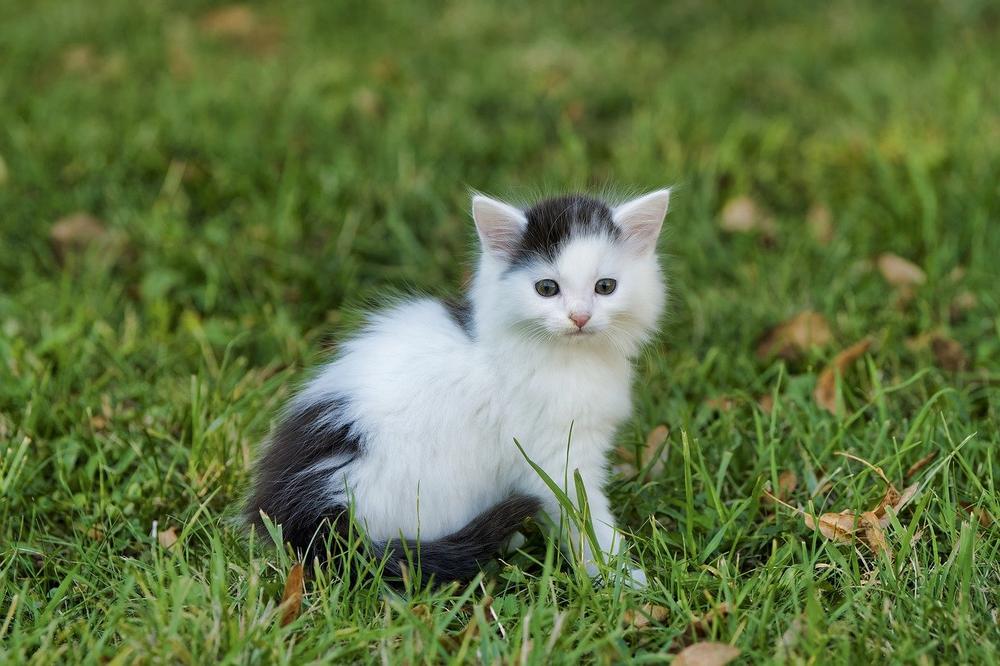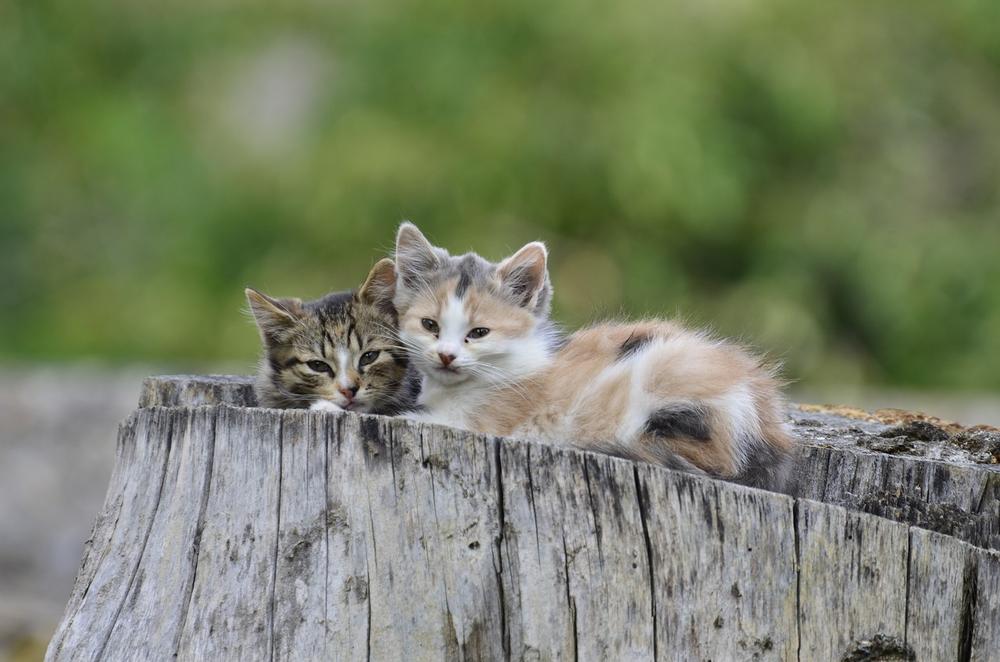Cat Meowing and Purring After Giving Birth: Is It Normal?

You're sitting there, hearing those meows and purrs from your cat after giving birth, and you can't help but wonder, "Is this normal? Is something wrong?"
Girl, I've been there.
Let's dig in and find some answers.
Ready? 😊
Let's go.
Excessive Purring and Meowing in Cats After Giving Birth
Cats meowing a lot after giving birth is super common.
It could mean they're hungry, thirsty, need help with their kittens, or just want some love and attention from you.
Don't stress though, because this meowing is usually totally normal and nothing to freak out about.
Buuut if you notice anything else weird going on along with the non-stop meowing, it might be a sign of health issues like urinary tract infections or mastitis.

In those cases, you should definitely reach out to your vet for some expert care.
To help calm down all that excessive meowing in mama cats, give these tips a whirl:
- Make sure she's got plenty of yummy food and fresh water to keep her nourished after giving birth.
- Give her a nice, quiet spot where she can chill and take care of her babies without any interruptions.
- Let her have some alone time each day to unwind and recharge.
- Help keep her mind engaged by offering toys and puzzles that'll distract her and relieve stress.
- Shower her with love and attention through gentle grooming and interactive playtime.
Every cat is unique and might have different needs. Keep an eye on her behavior and chat with your vet if you've got any worries about how she's doing.
By following these simple steps, you'll make sure your cat is comfortable and content during this special time and give her a break from all that meowing.
Main points I'll expand upon further down this article:
- Cats may meow to seek attention, but ignoring them can reduce this behavior.
- Cats purr to calm themselves down and aid in recovery.
- Purring serves as communication between mother cats and their kittens.
- Feeding a calm cat reduces excessive meowing during mealtime.
- Hand-nurturing kittens prevents transmission of infections.
- Mother cats purr to soothe and draw their blind and deaf kittens.
- Keeping mother cat and kittens together promotes bonding and prevents anxiety.
- Excessive meowing helps the mother instruct and protect her kittens.
- Persistent meowing or changes in purring can indicate health issues.
- Safe and calm environments are essential for stress reduction in cats.
But why do cats meow and purr so much after giving birth?
Let's explore the fascinating reasons behind these behaviors!
You'll be surprised by what you discover...
Why Do Cats Purr During Labor?
Purring is a vital self-soothing tactic employed by cats during labor.
It helps them calm down and enhances their breathing, promoting swift post-surgery recovery.
Cats engage in purring during childbirth for various reasons.

One purpose is to draw attention and initiate interaction through meows; however, disregarding these entreaties can minimize this conduct.
Moreover, female cats, known as queens, employ purring at the early stages of labor to pacify and unwind themselves, as well as to communicate with their unborn kittens.
Purring plays a role in alleviating pain and fostering healing throughout the labor process.
Additionally, cats may display vocalization or endeavor to create a cozy birthing spot.
Why Do Mother Cats Purr When Nursing?
Mother cats purr while nursing to guide their blind and deaf kittens towards them for feeding. Purring creates soothing vibrations that lead the kittens to their mother's warm belly, where they can root for milk. It also helps strengthen the bond between them and provides comfort and security.
When a mother cat meows and purrs after giving birth, it's completely normal behavior.
In fact, it plays a vital role in taking care of her newborn kittens, you see?
Here's the deal: when a mother cat purrs, it serves as a signal for her blind and deaf kittens to find her for feeding.
Purring creates these soothing vibrations that lead the tiny kittens towards their mama cat's warm belly.
That's where they can root for milk and nourishment.
Now, check this out: if you want to reduce excessive meowing during mealtime, it's best to feed a calm cat instead of a crying one.
So, the next time those little furballs start meowing up a storm, soothe them with gentle strokes and create a calming environment before feeding.
But wait, there's more to purring than just pointing towards food.
Mother cats also use what's called a "solicitation purr" to get attention or ask for food from their owners. It's like saying, "Hey, I'm hungry, pay attention to me!" 😺
And hey, while we're at it, always observe other behaviors alongside the purring to figure out why your cat is purring.
Look, is she kneading her paws?
Is she grooming herself or her kittens?
These actions give you valuable insights into what your cat needs or wants to communicate.
Another reason why mother cats purr is to comfort and attract their blind and deaf kittens.
This strengthens the bond between the mama cat and babies, ensuring they feel safe and loved.
To foster this bonding, you should keep the mother cat and her kittens together.
This way, they won't experience separation anxiety and can grow and develop under her watchful eye.

Oh, here's something else you need to know: excessive meowing from the mother cat is totally natural, too!
She uses it to guide her kittens and warn them about potential dangers, building that unbreakable mother-child bond.
Think of meowing as their way of saying, "Hey, listen up, little ones!"
Ultimately, meowing helps the mother cat connect with her kittens, lead them back home, and fulfill their every need. So, ensure a secure environment, regular attention, and care to reduce stress levels and keep those meows at bay.
My friend, maternal behavior includes attentiveness, protection, grooming, and cleaning.
It's all part of the beautiful process that mother cats go through after giving birth, guaranteeing their kittens grow up healthy and strong.
Before I finish, remember this:
Moving kittens at an early age can be harmful to their health.
So, it's best to let them stay with mama cat until they're old enough to explore the world on their own.
And don't worry if your cat seems affectionate one moment and distant the next.
It's perfectly normal for mother cats to have different moods and behaviors during this time.
So there you have it, my friend...
You now know why mother cats purr when nursing their precious bundles of joy.
Nature truly is fascinating, isn't it?
Go ahead, enjoy these heartwarming moments with your feline family, and give your kitty mama an extra scratch behind the ears from me.
And if you're curious to learn more about purring in cats, you should definitely check out my blog post on whether older cats purr more or less than younger ones.
It's a fascinating topic that will satisfy your curiosity and provide further insights into the intricacies of feline behavior.
So why wait? Dive into the world of purrs and discover the secrets of older cats' purring habits in my article Do Older Cats Purr More.
How Can I Tell if My Cat Is Having Trouble Giving Birth?
To figure out if your cat is having trouble giving birth, pay attention to these signs:
- If your cat meows or howls a lot and won't stop, it could mean something's not right during delivery.
- If your cat suddenly stops purring or purrs differently, it might be a sign of distress.
- Watch out for signs of agitation like pacing around, wide eyes, or restlessness. It's their way of telling you they're uncomfortable.
- Non-stop meowing is a red flag that your cat might be in pain or sick. Don't ignore it.
As a cat owner, it's super important to keep an eye on your cat while she's in labor.
If you see any of these signs, get your cat to the vet right away.
Dystocia, which means difficulty giving birth, may need veterinary help.
Making regular vet check-ups and taking preventive measures will keep both the mama cat and kittens healthy.
That includes getting your cat spayed, feeding her the right food, getting vaccinations, monitoring her weight, making sure she has clean bedding, and seeking vet care when necessary.
Together, we can make sure your cat has a safe and healthy birthing experience. 😉
And it gets better...
Creating a safe and comfortable space for your cat during childbirth is not only beneficial for her, but it also helps ensure the well-being of her kittens.
In the next section, we'll explore how you can create this ideal environment to promote a calm and stress-free birthing experience for your feline friend.
Stay tuned!
Should I Stay With My Cat as She Gives Birth?
When your cat is about to give birth, one question you might have is: Should I stay with her?
Well, the answer depends on your cat's preference.
Some cats prefer solitude during labor, while others want their owners by their side.
Either way, creating a safe and comfortable space is important.
Cats need a warm and cozy nesting area that reduces anxiety and promotes calm behavior. It's also helpful to establish a secure and tranquil environment to ease tension. You can use calming aids like pheromone sprays or give gentle strokes to relax your furry friend.
During this time, offering love, support, and a quiet environment are essential.
If you do need to move the kittens after they're born, prioritize the cat's comfort and the safety and cleanliness of the new location.
Once the kittens arrive, give the mother cat some space to care for her young.
Providing rest and a peaceful setting is crucial.
And that wraps up today's article.
If you wish to read more of my useful articles, I recommend you check out some of these: Are Black Cats More Vocal, Is Purring Involuntary in Cats, Why Is My Cat Hiding in the Closet, Do Cats Understand Kisses, and Do Kittens Bite When Teething
Talk soon,
-Sarah Davis